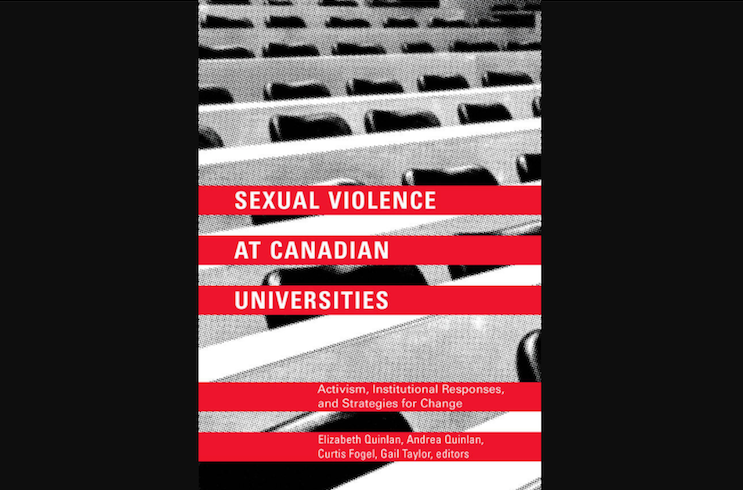Book on campus sexual violence lands amid ‘watershed’ moment in society
By Shanice Pereira
One of the editors of a new book about sexual violence on Canadian campuses says the 350-page volume — in the works since 2013 — has landed in the midst of what appears to be a “watershed” moment in public awareness of sexual harassment and assault faced by women across all sectors of society.
Sexual Violence at Canadian Universities: Activism, Institutional Responses, and Strategies for Change was launched by several of its editors and authors on Dec. 4 at the 25OneCommunity space next to Octopus Books on Bank Street.
The launch coincided with the 16 Days of Activism Against Gender Based Violence — spearheaded by Status of Women Canada — and came just before the annual Dec. 6 vigil at Minto Park for female victims of violence, which also marks date that 14 women were killed in 1989 at the École Polytechnique in Montreal.
The 27 contributors to Sexual Violence at Canadian Universities wrote about a range of issues around campus sexual violence, including how it intersects with issues of race, institutional responses, student activism on campus, sexual violence prevention and strategies for change.
The book’s compilation of research and information is unique, according to one of the four editors, Gail Taylor. She said the project began in the summer of 2013, before a frosh-week rape chant at St. Mary’s University in Halifax went viral and intensified the country’s attention on campus sexual violence.
“Sexual violence was not really well discussed or widely thought of as a public issue in the way that it is now,” said Taylor. “That’s all happened over the course of putting the book together.”
Taylor served as the community editor for the book, which she said is uncommon for a university press book because she does not have an a academic background like the other editors. Her experience stems from activism and community involvement in relation to combatting sexual violence.
One of the other editors, Elizabeth Quinlan, a professor of sociology at the University of Saskatchewan, noted how the publication of the book is relevant to the so-called “Weinstein effect,” coined after dozens of accusations of sexual harassment and assault were levelled recently against U.S. film mogul Harvey Weinstein. Quinlan also referenced the #MeToo movement that has prompted thousands of survivors of sexual violence to share their stories through social media.
A focus on the future was highlighted by other writers in attendance: Julie S Lalonde, a former Carleton student turned activist, as well as Elizabeth Sheehy and Daphne Gilbert, two professors of sexual assault law at the University of Ottawa. Sheehy and Gilbert discussed their participation in the creation of the University of Ottawa’s sexual violence policy and the glaring inconsistencies among Canadian universities in tackling the problem.
“The disparity and divergence among university sexual violence policies is going to rebound on women. That’s who’s going to pay the price of this,” said Sheehy.
Ally Crockford, public educator at the Centretown-based Ottawa Rape Crisis Centre, offered a local, “frontline perspective” on the panel’s discussion.
“I want to see a better understanding implemented of what the impact is on survivors, and what that looks like locally, because there is a tendency to be able to project things elsewhere and not see it as something that happens here,” said Crockford.
There were both optimistic and pessimistic views on the future when it comes to curbing sexual violence against women.
Sheehy said: “I’m pessimistic about law, but I am not pessimistic about women or women’s movements, because women are bringing down powerful men.”

